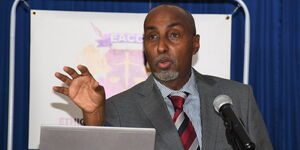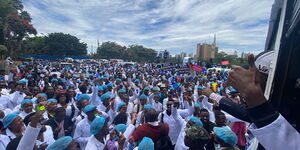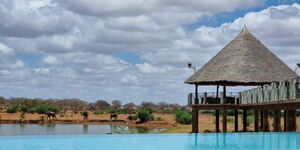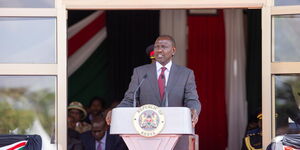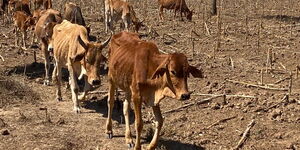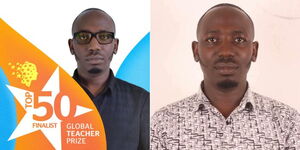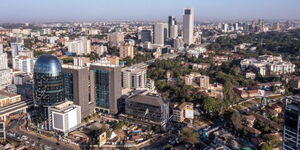Orange Democratic Movement (ODM) leader Raila Odinga on Sunday, April 26 shared a raft of proposals, pushing for their implementation by Kenya and other African countries after the Covid-19 pandemic was dealt with.
The African Union (AU) Special Envoy for Infrastructure explained that the crisis offered Africa an opportunity to chart a new path in which it was less reliant on donors, offering solutions to ensure greater independence.
"Throughout history, catastrophes like the current Covid-19 have served as springboards for invention, innovation and policy shifts upon which phoenix industries rise like new lush vegetation after devastating forest fires and new economic models emerge," he wrote.
Raila outlined at least seven proposals in fields including healthcare and medical research, manufacturing, trade and devolution.
He called for African countries to stop exporting raw materials including minerals such as crude oil and focus on value addition.
"Instead of exporting iron ore, copper ore, bauxite, we must export steel products, copper cables, bars, sheets and aluminum.
"Even gold, diamonds and crude oil should never leave Africa as raw materials for industries in other continents," he asserted.
Raila also called for major changes in how African countries approached healthcare, particularly pushing for the strengthening of the National Health Insurance Fund (NHIF) in Kenya to provide quality Universal Health Care (UHC) coverage.
"Covid-19 has badly exposed our deficient healthcare infrastructure, indicating that we have only concentrated on prevention and cure...NHIF must be strengthened to continue with the provision of comprehensive medical cover," the former Prime Minister asserted.
He went on to call for a review of the donor-centric healthcare systems in countries such as Kenya, stating that it was time to become less reliant on donor funding.
"We need to review the domination of our healthcare by donors in terms of funding and agenda setting while Kenya boasts of a very highly trained health workforce.
"When donors are overwhelmed in their own countries as is the case now, we are left badly exposed," he argued.
Raila also called for greater backing of institutions such as the Kenya Medical Research Institute (KEMRI) to promote medical research and innovation.
"Let us question the dominance of US CDC (Centre for Disease Control) over KEMRI and its equivalents in Africa and seek ways to make these institutions independent, more attuned to Africa’s needs," he wrote.
In addition, Raila also called for a re-think of food production and storage systems in Kenya and Africa at large, explaining that traditional African communities would have been better prepared for a lock-down as each household stored food in granaries in addition to many having small vegetable farms.
"Food should never be an issue in Africa. We own most of the world’s arable land and over half of our population is employed in this sector. Yet Africa still can’t feed its people.
"We have frustrated agriculture by the economics of “tenderpreneurship,” importing items like sugar, maize, wheat and rice and frustrating farmers’ access to inputs. We have equally ignored hardy traditional crops. Leaders fear locking down their countries to fight Covid-19 because it could lead to starvation and even upheavals. Yet Africans could easily feed themselves even under a lockdown.
"African homes used to have food, including chickens and eggs, dried and preserved fish, meat, cassava, millet, beans. Nearly every homestead had a vegetable farm," Raila stated.
He called for the creation of a self-reliant rural economy with integrated, reliable food production and storage systems.
A long-time proponent of devolution, Raila further called for devolved units to be strengthened to facilitate various programs including the development of self-reliant rural economies.


